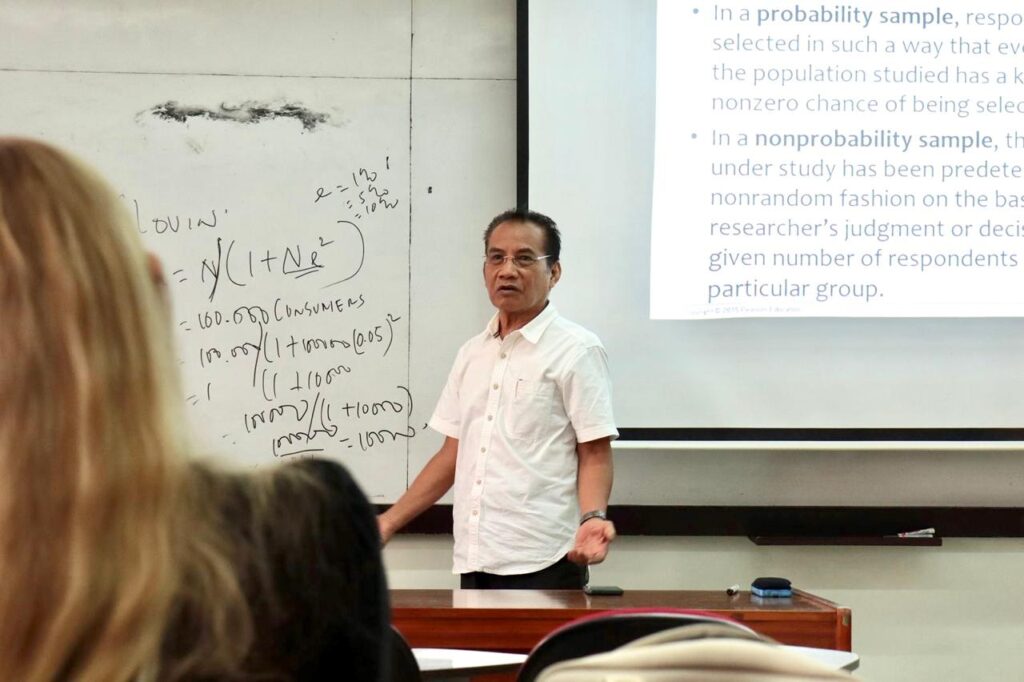Source: Untar Public Relations – VA
July 5th marks the 72nd anniversary of Bank Indonesia. This date is commemorated as Bank Indonesia Day, not only to remind us of when Bank Indonesia was established, but more importantly to honor its long history in implementing monetary, financial, and banking policies in Indonesia. Such recognition is necessary to ensure that Bank Indonesia continues to maintain economic stability, the financial and monetary systems, and to encourage Indonesia’s economic growth.
There are certainly too many to mention one by one here regarding the policies and actions of Bank Indonesia over the 72 years in maintaining economic stability, the financial system, and driving Indonesia’s economic growth. Among its many contributions, Bank Indonesia has successfully managed, among other things, the stability of the rupiah exchange rate, controlled inflation, maintained financial system stability, developed the payment system, and promoted financial inclusion. Bank Indonesia has also been able to issue legal tender, formulate and implement monetary policies, ensure the smooth functioning of the payment system, oversee banking, and carry out its role as the “Lender of the Last Resort” with all the dynamic challenges it faces.
The successes of Bank Indonesia mentioned above are also supported by the Republic of Indonesia Law No. 3 of 2004 on Amendments to Republic of Indonesia Law No. 23 of 1999 on Bank Indonesia, which states that Bank Indonesia is an independent state institution in carrying out its duties and authorities, free from interference by the government and/or other parties, except for matters that are explicitly regulated by law.
However, it must be acknowledged that the journey of Bank Indonesia over these 72 years has not been without obstacles. Various domestic and international crises have been faced, including the 1997–1998 monetary crisis and the 2008 global financial crisis. During the 1997–1998 monetary crisis, Indonesia experienced a difficult period in its economic history, marked by a drastic depreciation of the rupiah against the US dollar, high foreign debt, poor financial governance, and the ineffective and damaging solutions provided by the International Monetary Fund (IMF) programs, which triggered various negative impacts on the economic, social, and political sectors.
Not to mention the global financial crisis of 2008, often referred to as the subprime mortgage crisis. This crisis was caused by several key factors, including the housing bubble in the United States, risky subprime lending practices, and the lack of stringent regulations on the financial markets. The crisis then spread globally due to the complex financial products that were traded worldwide, which were based on subprime mortgage loans. Of course, there have been many other challenges faced by Bank Indonesia throughout its 72-year journey. Fortunately, throughout this period, Bank Indonesia has generally been able to navigate through these challenges.
The challenges facing Bank Indonesia now and in the future in maintaining the stability of the financial system and supporting economic growth are no longer separated between domestic, international, regional, and global challenges. The main challenges include global economic uncertainty, operational risks due to digitalization, and the need to maintain the stability of the rupiah exchange rate. In addition, Bank Indonesia also needs to address challenges related to food, energy, and water security, as well as manage risks related to the economic policies of other countries. Recently, Bank Indonesia has also faced new challenges, such as climate change, financial digitalization, unresolved geopolitical tensions between Russia and Ukraine, and the geopolitical crisis in the Middle East between Israel and Palestine, as well as Iran and Israel, which have driven up energy and food prices. Whether we like it or not, all these challenges can directly or indirectly affect issues such as inflation, high interest rates, the volatility of capital flows, foreign debt payments, and so on, disrupting the sustainability of Bank Indonesia in moving forward to maintain macroeconomic, monetary, and financial stability, as well as achieving the targeted 8% economic growth.
Therefore, in the future, Bank Indonesia’s efforts to maintain macroeconomic stability, strengthen the resilience of the financial system, and promote sustainable economic growth need to consider the following key points. First, Bank Indonesia must continue to maintain macroeconomic stability. This can be achieved by optimizing inflation management: closely monitoring inflationary pressures and adjusting its monetary policy to keep inflation under control. As part of this policy, Bank Indonesia must also continue to intervene in the foreign exchange market to manage excessive volatility in the rupiah and maintain its stability, while coordinating with fiscal and non-fiscal policies in national macroeconomic management.
Second, Bank Indonesia needs to strengthen the resilience of the financial system: for example, through the optimization of risk management. This can be achieved by encouraging commercial banks and other financial institutions to adopt a more selective approach to lending, prioritizing industries with strong performance and growth potential, while also managing liquidity risks. Bank Indonesia must also innovate and drive financial digitalization by promoting the development of innovative financial products and services, including digital payment systems, to enhance financial inclusion and efficiency. Additionally, it should focus on cybersecurity by collaborating with financial institutions to improve cybersecurity measures, protecting against cyber threats, and ensuring the stability of the digital financial ecosystem.
Third, Bank Indonesia must continue to drive sustainable economic growth, among other things, by encouraging banks to increase lending to sustainable sectors, such as Micro, Small, and Medium Enterprises (MSMEs), cooperatives, renewable energy, and green infrastructure, to support long-term economic growth. This can also be achieved by creating a conducive environment to attract foreign direct investment and other forms of capital inflows to support the momentum of growth and economic development. Fourth, Bank Indonesia needs to develop human resources through vocational education and training to enhance the productivity and competitiveness of the workforce in the national financial and banking sectors.

Documentation of Prof. Carunia presenting material in class // Source: Untar Public Relations
Finally, institutional transformation must continue to be carried out with strengthening the organization, including organizational structure, business processes, and human resources, to improve its efficiency and effectiveness. Digitalization must also be given attention to enhance its internal operations and increase its ability to respond to the rapidly evolving and dynamic financial landscape. It is acknowledged that there are still many other key considerations that Bank Indonesia needs to address in formulating innovative and inclusive steps moving forward to achieve and realize its vision and mission.
Bank Indonesia’s sound policies certainly need to be continued, while policies that do not have a positive impact on inclusive, competitive, and sustainable national development should be abandoned. The importance of this is emphasized because, as often stated, “today’s problems cannot be solved by yesterday’s solutions.”
Bravo, Bank Indonesia.
Author: Prof. Ir. Carunia Mulya Firdausy, M.ADE., Ph.D.


